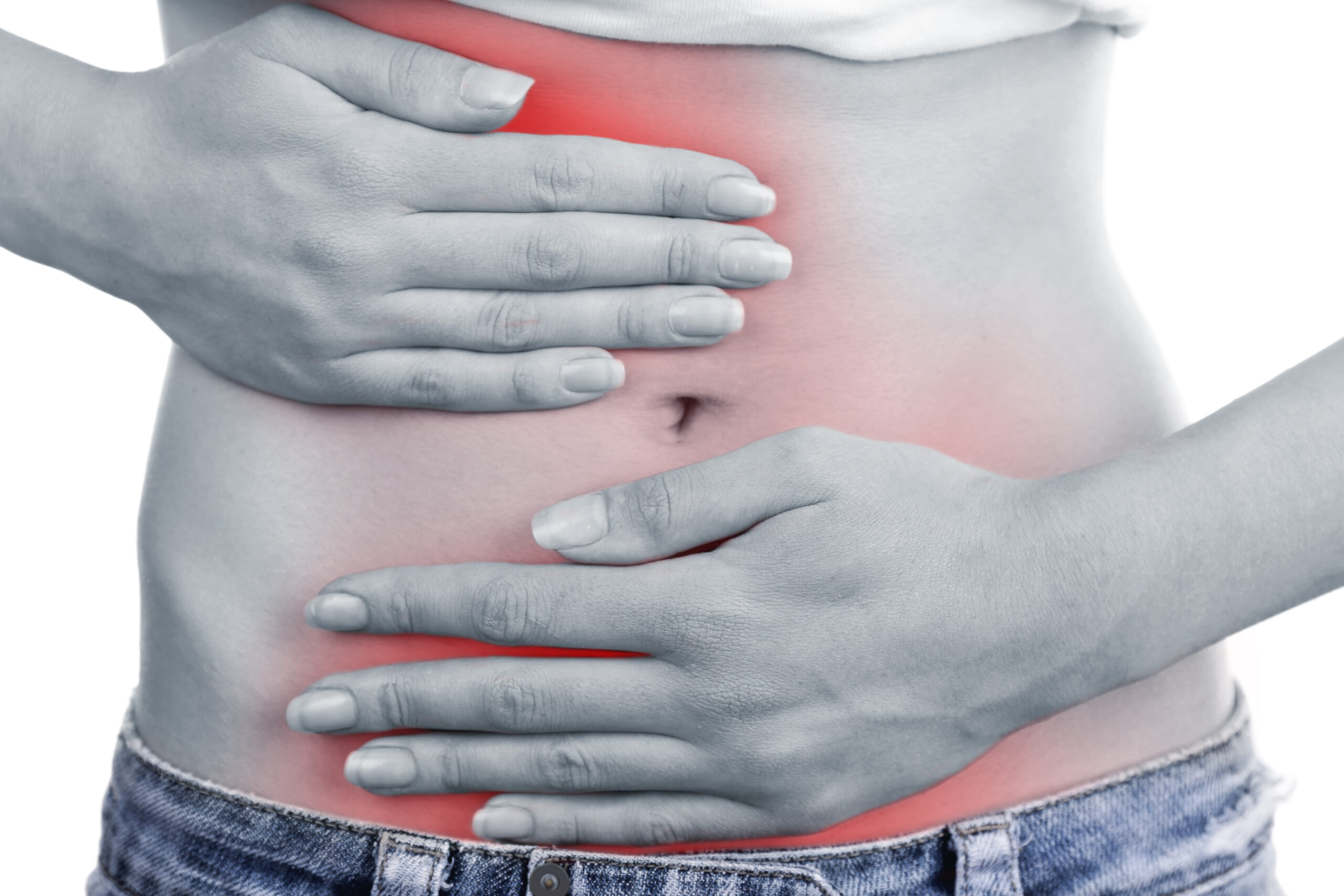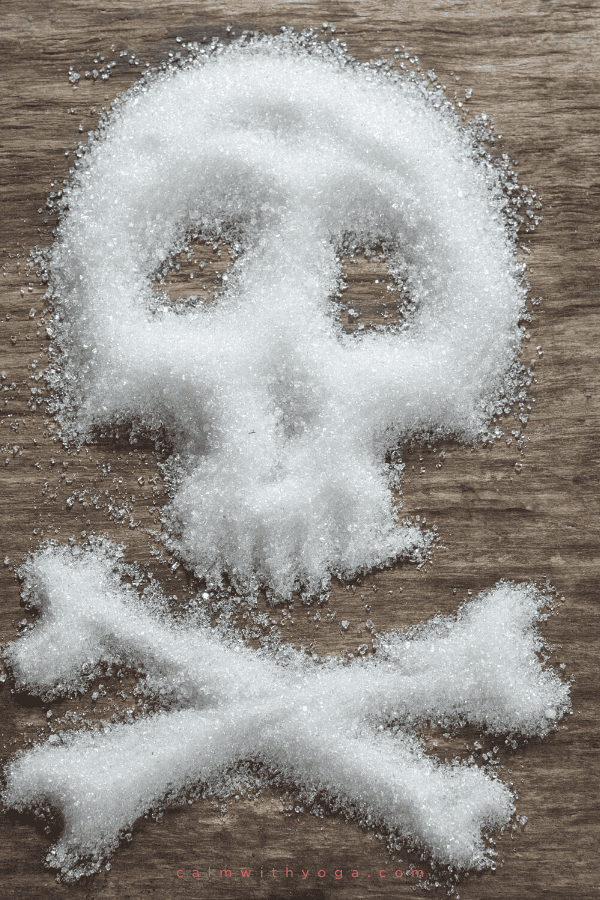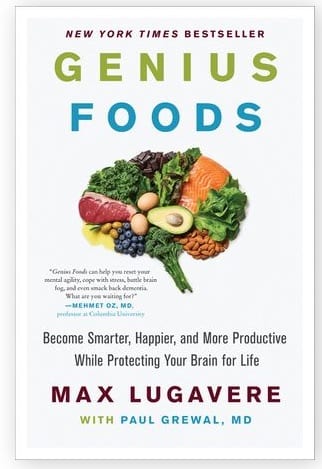“All diseases begin in the gut.”
– Hippocrates
My first real encounter withchronic inflammationwas at the onset of my autoimmune disease/inflammatory disease.
I started noticing bright red blood in the toilet bowl every day and every time I went to the bathroom.
After months of trying to stop it and trying to figure out what was going on inside me, I finally got the colonoscopy that revealed I had aninflammatory bowel disease(IBD) known as ulcerative proctitis -chronic inflammationof the rectum.
I had no idea what true gut inflammation was until that point.
I had never heard of the termleaky gut(intestinal permeability) nor had I really paid much attention to theoverall healthof mydigestive systemand body in general.
So I went on a self-imposed healing quest to try to understand what was happening to my body so I could find some answers…
Why You Need To Know About Your Microbiome:
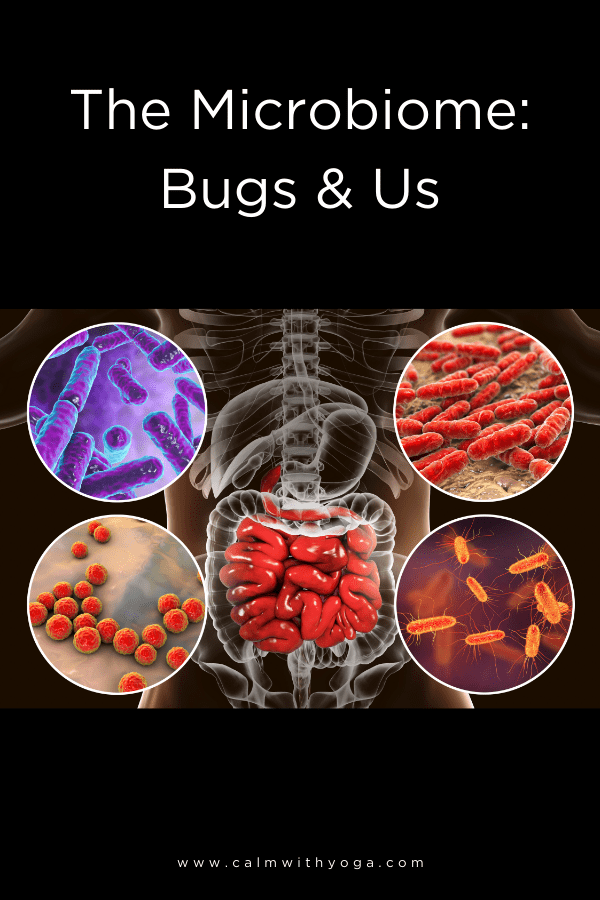
“The state of your microbiome determines whether or not your body is fanning the flames of inflammation or squelching them.”
– David Perlmutter, Neurologist & Author of ‘Brain Maker’
I learned about the universe of 100 trilliongut bacteriathat reside in ourgastrointestinal tract.
Known as thegut microbiome, this little world within us is pivotal togut health(digestive health), mental health, and really justoverall health.
Ahealthy gutis characterized by a majority presence ofbeneficial bacteria(aka commensal/goodbacteria) that work with us in mutually beneficial ways.
Beneficial bacteria found in thedigestive tracthelp us regulate our gene expression, metabolism, sleep-wake cycles,immune response, and can even protect us from viruses and infections.
This Is How YourImmune System& Gut Bugs Create Inflammation:
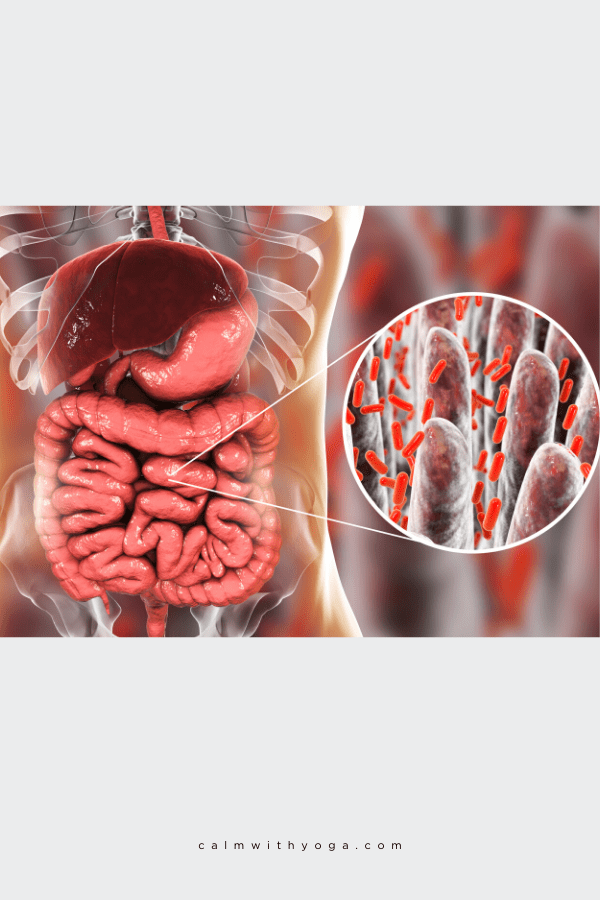
“The reason most of yourimmune systemis deployed in your gut is simple: the intestinal wall is the border with the outside world.
Aside from skin, it’s where your body has the most chances of encountering foreign material and organisms.
And it is in constant communication with every otherimmune systemcell in the body.
If it meets a problematic substance in the gut, it alerts the rest of theimmune systemto be on guard.”
– Dr. David Perlmutter, neurologist & author of “Brain Maker”
Did you know that over 80% of yourimmune systemis located in the gut too?
The gut’simmune cellswork closely with your gut bugs to ensure your defenses are working in full capacity.
Dysbiosis(imbalance in the gut) occurs when anovergrowthof harmfulgut microbesoccurs within thegut lining.
This leads tointestinal inflammationwhich over time begins to negatively impactintestinal lining.
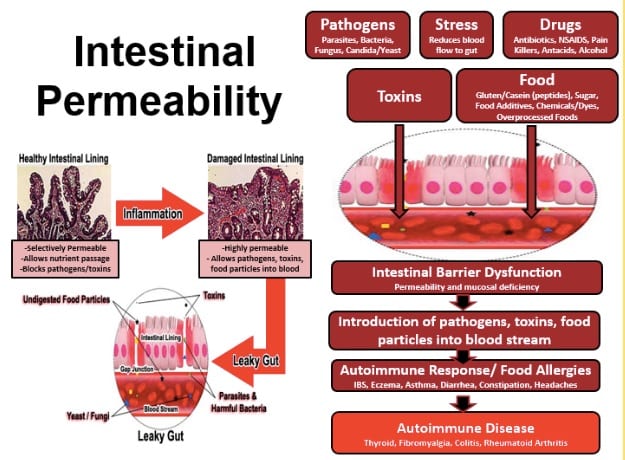
Ahealthy gutwith an abundance of beneficialintestinal microbiotawill maintain tightness at the junctions ofgut liningcells.
This means that nothing inside the gut leaks through to the outside.
But when the intestinal barrier is weakened undigested food and particles make their way to the bloodstream and other parts of the body causing an immune response and inflammatory conditions throughout the body.
This creates anincreased riskfor a variety of mental and physical diseases and conditions.
What’s kind of scary is that for many of us, unless you have extreme symptoms like my bleeding, for example, we would have no idea that we’re experiencing agut floraimbalance and compromisedintestinalbarrierfunction.
Upon working with a naturopathic doctor and running further tests we discovered that I also had a chronic small intestinal bacterial infection, otherwise known as SIBO (small intestinebacterialovergrowth.)
In ahealthy gut, the majority of the gut bugs are found in the colon (large intestine).
With infections like SIBO, there’s anovergrowthof harmful bacteria in a place where they’re not supposed to be. (Hello chronicbloating.)
These harmful bacteria can release what’s calledendotoxinswhich further drives theinflammatory response.
A Closer Look At Inflammation &Immune Function:
Inflammation is the body’simmune responseto protect you from a perceived threat.
This response is aimed at removing whatever is harming or threatening the body and then regenerating the body.
Normally, inflammation is actually a positive sign that the body is doing its thing and trying to heal itself.
But when inflammation becomes chronic (long term) it becomes a whole other beast to deal with.
Chronic inflammation can be caused by:
- An autoimmune response where theimmune systemattacks your own body tissues because it mistakenly thinks they are a foreign threat
- A chroniclow-gradeirritant that persists and goes unnoticed
- Not getting rid of whatever is causing an acuteinflammatory response
Think of your “good”gut microbiotaas your allies in Battle – they are trillions of little soldiers fighting for you – for your health, wellbeing, and mental power.
The better they are treated (for example by feeding the right stuff vs the wrong stuff), the stronger they will be and the more they will fight for you (ie: fight infection).
These little warriors are up against some vicious opportunistic invading “bad” bacteria, viruses, and parasites:
Yourimmune systemcontrols yourinflammatory response.
Chronic immune activation leads tochronic inflammationandsystemic inflammation(inflammation spread throughout the body).
Inflammation in one area of the body can spread to any other area(s).
For example, if say, you have an undetected GI infection that leads to inflammation in your gut, that inflammation can spread to your joints, making them achy and sensitive.
Chronic inflammationhas been linked tochronic diseasesandhealth conditionssuch as asthma, gum disease, dementia, Alzheimer’s, irritable bowel syndrome, ulcerative colitis, Crohn’s disease, diabetes,heart disease(cardiovascular disease), depression, autism, and yes, even anxiety disorders, though more research is underway to fully understand these mechanisms.
Essentially, any condition that ends in “-itis” involves theinflammatory response.
How can you know for sure if you have undetected inflammation in the body?
Get tested forinflammatory markers.
When you run your bloodwork you can test for a particular marker called C-reactive protein (CRP).
Elevated levels of CRP indicate inflammation in the body.
CRP is produced in the liver and rises in response to increases in inflammation.
Foods ThatCause Inflammation:
1 – Processed and refined foods
These are foods that have been so highly processed they’ve lost their nutritional value.
They can also be referred to as “Frankenfoods.”
They are high in toxictrans fats, highfructosecorn syrup, andadded sugars.
These really should be avoided if you want to lowerinflammatory responses.
Some examples:
-white bread/white flour
-pastries
– potato chips
These foods also tend to becarbsthat spikeblood sugarand promoteinsulin resistanceand eventype 2 diabetes.
2 -Fried foods
Yep, as much as we all love afast foodfix with an extra side offrench friesyou’ll want to stay away if your health is compromised.
3 – Processed oils
Stay away from allvegetable oils- soybean oil, canola oil,saffloweroil, grapeseed oil, etc.
Healthy Eating&Anti-InflammatoryFoodsThat Promote Gut Health
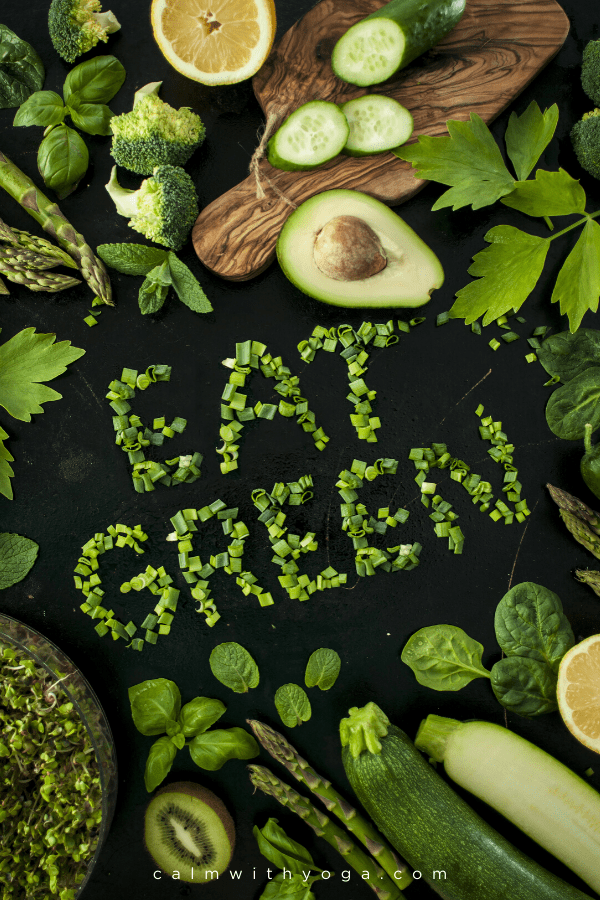
So now that you know what to avoid, here is a list of healing foods you’ll want to run towards…
You can start by increasing the number ofbeneficial bacteria(healthy bacteria) by choosing to incorporateprobiotic-rich foods.
Common “good” gut bugs found in manyprobioticsupplements include:
– lactobacillus
– bifidobacterium
Here are a fewprobiotic-rich foods:
-fermented foodsand cultured vegetables likesauerkrautandkimchi,kombucha
– yogurt/kefir(note: dairy is generally inflammatory so stick with coconut or nut kinds)
– apple cider vinegar
-tempeh,miso(fermented soybean)
2-Prebiotics
Prebioticsaren’t living organisms likeprobiotics; they’re a substance that comes from fermentable fibers that we eat but cannot digest.
Prebioticfiberis essentially food for theprobioticsin our gut.
Probioticseatprebioticsand then ferment what’s left into what are called short-chainfatty acids(SCFAs).
Prebiotic-rich foods include:
- garlic
- onions
- leeks
- asparagus
- barley
- bananas
- oats
- apples
- konjac root
- cacao
- flax seeds
- seaweed
- leafy greens
- jicama root
- dandelion
- Jerusalem artichoke
- chicory root
3-Turmeric
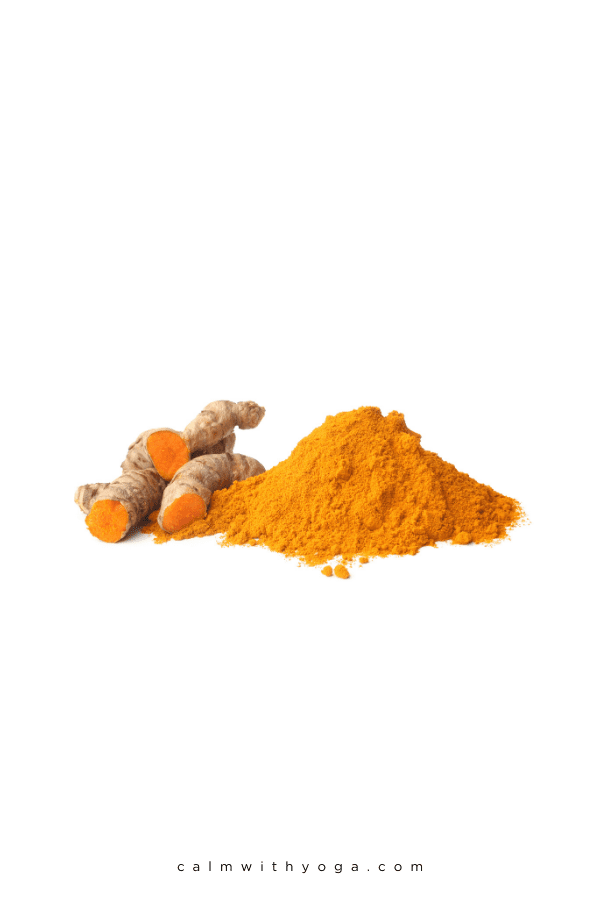
Curcumin, the active ingredient inturmeric, has been found to be a powerfulanti-inflammatorycompound.
Curcumin has also been found to be an anti-bacterial, anti-viral, and anti-fungal.
Prolonged curcumin use also may protect your brain.
Some research suggests that its neuroprotective properties include cognitive improvement/enhancement and ‘neurogenesis’ (growth and development of neurons).
It’s also a powerful antioxidant that fights free radicals, thereby promoting cell health.
Taken daily, it also improvesdigestive health- it reduces gas andbloating, stimulates the gallbladder, and decreases inflammation of thedigestive tract.
4 – Organic extra virginolive oil
This staple of theMediterraneandiet is now widely documented tofight inflammationand promote healing and wellness.
Best consumed raw or at least cooked in low heat as it’s not as stable in higher temperatures.
5 -Fatty fish(low mercury)
Fish like wild-caught sockeye salmon are known for theirhealthy fatsandanti-inflammatoryeffects.
In fact, wild sockeye salmon contains the highest amounts ofomega-3 fatty acidsof any fish.
Your body needs a balance of bothomega-6 fatty acidsandomega-3 fatty acids, but too much omega-6 can triggerinflammatory messengersand chemicals.
6 – Genius Foods
Researcher and author of “Genius Foods” Max Lugavere conducted years worth of research into what kinds of foods are needed tofight inflammationand keep our brains from atrophy.
Highly recommend the book as it’s full of easy to understand research and applicable lifestyle changes.
On top of the foods mentioned above he also includes:
-blueberries
-kale
-avocado
-red meat



